Celebrations of the 100th Anniversary of the Polish Social Policy
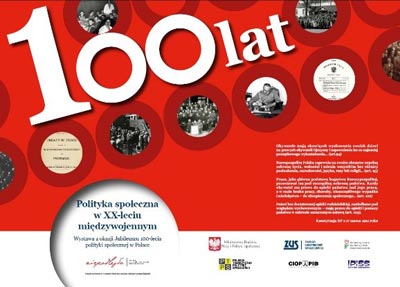 |
| Photo: Poster of the Exhibition “Social Policy in the interwar period” |
This year Poland celebrates the 100th anniversary of regaining independence. At the same time, in 2018 it celebrates the 100th anniversary of the Polish social policy.
The jubilee emphasizes the importance of social politics which has been implemented in Poland since the independence was regained in 1918.
In the development of social policy in Poland when it comes to shaping working conditions, we can distinguish three stages: the interwar period (1918-1939), the period before Poland’s integration with the European Union (1945-2004) and the membership period in the European Union (from 2004).
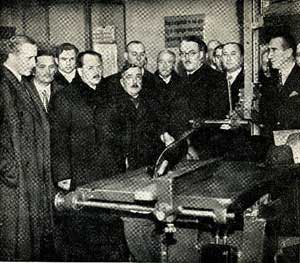 |
| Photo: Protective Devices Design Office and Industrial Safety Counselling Centre at the Museum of Technology, created in 1937 and active until the start of World War II. |
The main task of the interwar stage, straight after the restoration of independence, was to create the country structure and build basic institutions. Poland had to overcome the negative effects of occupation and chaos resulting from the division of Poland into three separate regions under different partitions Poland has faced many challenges, such as poverty reduction, fight against malnutrition, begging and mass unemployment, as well as ethnic and class conflicts. It was time when Polish social policy was shaped in such areas as labour and social security law, care and social assistance, occupational safety and health, family support and health care policy, assistance to people with disabilities, education and youth policy, development of cooperative societies and migration policy. Occupational safety and health legislation in the interwar period was recognized as one of the most modern in Europe. An important legal and organizational event that supported efforts to improve work safety in the interwar period was the establishment of the Institute of Social Affairs under the Minister of Social Welfare in 1931
An important initiative for the policy of shaping the working conditions was the creation of the Protective Devices Design Office and Industrial Safety Counselling Centre at the Museum of Technology by the Social Insurance Institution at the initiative of the Ministry of Social Welfare in 1937. The task of Protective Devices Design Office was to present technical equipment protecting against accidents. Unfortunately, the outbreak of war interrupted this activity. Two years after the end of the war the Office resumed work at the Ministry of Labor and Social Welfare.
 |
Photo: Occupational Safety Poster Competition, 1997, II prize, Author: Mariusz Napierała Title: “untitled” |
After the end of the Second World War in Poland the nature of the work changed, new industries appeared.The policy of shaping working conditions was transformed from physical effort to psychological research into the causes of accidents, work analysis for hazards and accident prevention. There was a need to expand the research division on working conditions and their optimization. To this end, the Central Institute for Labor Protection (CIOP) was established in 1950. Since the beginning of its operations CIOP conducted uninterruptedly research in the area of health and safety at work, among others concerning the adaptation of the physical working environment to the employee’s capabilities.
The approach to OSH has changed significantly in the 1990s: fewer people have worked physically and more people have been employed in the services and knowledge-based sectors, so the Institute began to diagnose psychological working conditions.
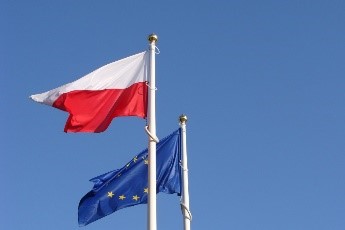 |
|
Photo: wnp.pl |
In 2004 Poland became a member of the European Union and was obliged to harmonize its regulations with EU law. It also had to take into account social relations as a factor affecting health and safety at work. Poland has been active in drawing up new regulations on working conditions, related not only to physical and chemical occupational hazards, but also to social and psychological risks and has developed innovative solutions in these fields
The development of Polish social policy was supported by active international cooperation with the most important OSH organisations , such as the International Labour Organisation (Poland was one of the eight founding countries of the ILO in 1919), the World Health Organisation (WHO) and after Poland’s accession to the European Union also the Foundation for the Improvement of Living and Working Conditions (Eurofound) and the European Agency for Safety and Health at Work (EU-OSHA).
The century of Poland’s independence is a hundred years’ period of government assistance and support to the weakest citizens. The main task of social policy in those days was to eliminate social inequalities.
Currently, apart from new technologies and changes in the work organization, the challenge is the demographic change and the expected increase in the number of people receiving old-age pensions. Hence the active government policy to reverse this trend, including support for Polish families (e.g. Family 500+ program and institutional care for small children, so that mothers can return to the labour market). Special support includes also senior citizens (Senior+ program) and people with disabilities (Access+ program).
The Ministry of Family, Labour and Social Policy has planned a number of events dedicated to celebrate the 100th anniversary of Polish social policy. The celebrations include a series of 15 conferences on the theme “Past-Present-Future”. This year they are held in each province of the country. The first conference in the series took place in Warsaw on 11 April – the day Poland joined the International Labour Organization almost 100 years ago – as was emphasized by Ms Elżbieta Rafalska, the Minister of Family, Labour and Social Policy during the opening of the conference. One of the conference’s guests was Deputy General Director of the International Labour Organization (ILO) – Mr Heinz Koller. Inaugurating conference gathered the most important personalities of Poland – among others representatives of the President of the Republic of Poland and the Deputy Prime Minister. Thematic conferences have already been held in Warsaw, Wrocław, Poznań, Szczecin, Toruń, Gdańsk, Olsztyn, Katowice, Łódź and Gorzów Wielkopolski. There are still 5 conferenced planned for September: in Krakow (10.09), Kielce (19.09), Lublin (24.09), Rzeszów (25.09) and Opole (28.09).
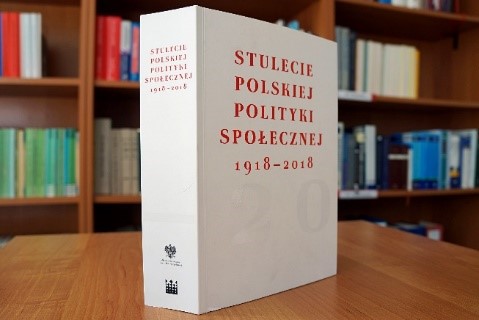 |
| Photo: “The Centenary of Polish Social Policy 1918-2018”, source: www.gbpizs.gov.pl |
Additionally the Ministry has prepared a mobile exhibition entitled: “Social Policy in the interwar period” and published a commemorative, collective publication entitled “The Centenary of Polish Social Policy 1918-2018”, which has been prepared by a group of experts. It shows the evolution of social policy in Poland over the last 100 years.
Apart from the Ministry of Family, Labour and Social Policy such organisations as the Social Insurance Institution, State Fund for the Rehabilitation of the Disabled, the Institute of Labour and Social Affairs, the Central Institute for Labour Protection – National Research Institute, the National Centre for Culture and the Main Board of the Polish Society for Social Policy are actively involved in the celebration.
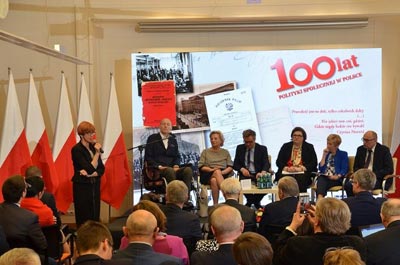 |
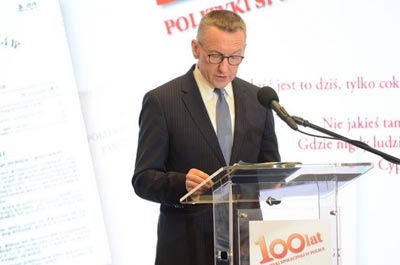 |
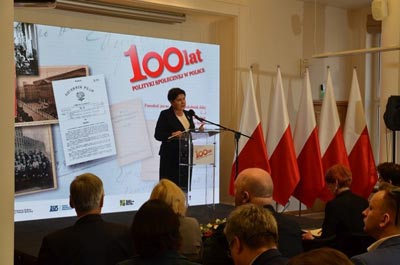 |
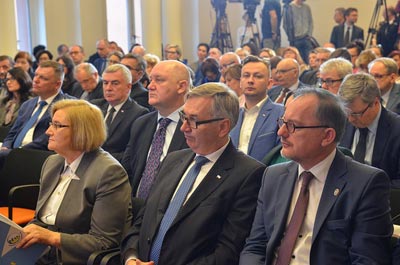 |



